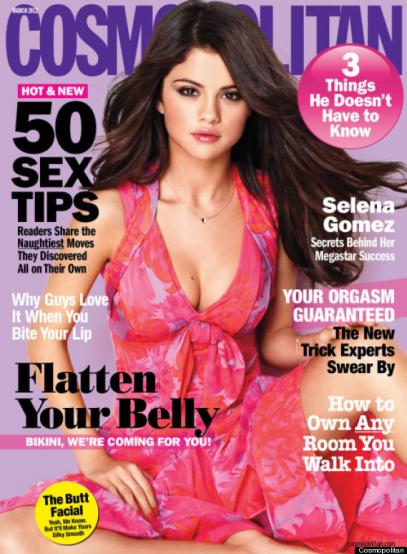NAPLES, Fla. ? Mitt Romney's strength may be growing, but he won't secure the Republican presidential nomination Tuesday, even if he scores a convincing victory in Florida's primary.
His rivals have vowed to keep fighting well beyond the Jan. 31 election. But win or lose in Florida, the Romney machine is already executing an aggressive multi-state strategy designed to suffocate his opponents' chances as the GOP contest moves forward. And some Republicans say it's time for Romney's rivals to give up.
"By traditional measures, a big Florida win for Romney would mean that this thing is just about wrapped up," said Todd Harris, a Washington-based Republican strategist with Florida ties. "Most Republicans think it's time to stop the infighting and start taking the campaign straight to President Obama."
Florida polls showed that Newt Gingrich briefly surged into the lead following his South Carolina victory just nine days ago. That lead is gone, according to an NBC News/Marist poll published Sunday. Romney now has support from 42 percent of likely Florida primary voters, compared with 27 percent for the former House speaker.
But even before he reclaimed the momentum in this rollercoaster race, Romney's advisers were looking ahead.
There are seven elections in February, beginning with Nevada's caucuses Saturday. A series of lower-profile contests ? including a non-binding Missouri caucus ? come over the next week in Colorado, Minnesota and Maine. They're followed by a 17-day break, which ends with primaries in Arizona and Michigan on Feb. 28.
The mid-month break, bookended by states considered favorable to Romney, presents significant challenges for the other candidates, who trail Romney in both money and organization.
"I think the biggest thing to keep an eye on is that two-and-a-half-week down time between the 11th and the 28th," said Romney political director Rich Beeson. "If you don't have momentum and resources coming into it, it's going to be hard to have momentum and resources coming out of it."
Romney has consistently dominated his opponents in fundraising, reporting $19 million in his campaign account at the end of December. And his campaign distributed paid staff on the ground ? months ago, in some cases ? to bolster a growing network of local supporters. They include a combined 380 Republican officials across February voting states, eight members of Congress among them.
Romney's advisers ? and unaffiliated Republicans ? see a widening path to victory beyond Florida.
"A lot of the contests are states he won four years ago. Some of them are big primary states like Michigan. Arizona, we didn't get to in 2008, but we think that's good, fertile territory for us," said Romney senior adviser Eric Fehrnstrom. "Other states ? Colorado, Minnesota, Maine ? these are all contests we won in the past, where Mitt still retains a strong base of support."
The optimism is backed by reality on the ground.
While his opponents have struggled to compete in one state at a time, Romney has had paid staff in Nevada since June. He has already begun advertising there. More recently, the campaign dispatched staff to Colorado and Arizona. Top New Hampshire surrogates are headed to Maine in the coming days.
And Romney is scheduled to campaign across Nevada, Colorado and Minnesota before next Saturday, according to Fehrnstrom.
He's not the only one looking ahead. Texas Rep. Ron Paul is skipping Florida altogether in favor of the less-expensive February states. Rick Santorum ? who's dealing with his daughter's illness ? this weekend abandoned plans to campaign in Florida in favor of Missouri, Minnesota, Colorado and Nevada.
But building momentum in those states alone will be difficult. And Republicans with no stake in the campaign agree that Romney has tremendous advantages.
"You've got one campaign with vastly superior resources across the board," said Washington-based Republican strategist Phil Musser, adding that fundraising will be an increasingly daunting challenge for Romney's competitors should he win Florida.
Outside help from so-called super PACs could be ending as well. Gingrich's recent rise was aided by a wealthy supporter who recently funneled $10 million to an outside group dedicated to helping him.
"For super donors, the romantic period is over," Musser said before offering a warning. "If we've learned anything from this cycle, it's that there aren't many crystal balls that are clear."
whole foods whole foods blood pressure uhs uhs google street view google street view







 Apple TV is still a hobby. The word comes from Apple's Chief, Tim Cook who nevertheless championed the company's current offering. He stated that Apple sold more than 2.8 million Apple TV units last fiscal year with 1.4 million moved within Q1 2012 (a new record for the device). ?Our Apple TV product is doing quite well? but in the scheme of things, we still classify Apple TV as a hobby. We continue to add things to it. If you?re using the latest one ? I don?t know about you, but I can?t live without it. Other than that, no comment.? said Cook.
Apple TV is still a hobby. The word comes from Apple's Chief, Tim Cook who nevertheless championed the company's current offering. He stated that Apple sold more than 2.8 million Apple TV units last fiscal year with 1.4 million moved within Q1 2012 (a new record for the device). ?Our Apple TV product is doing quite well? but in the scheme of things, we still classify Apple TV as a hobby. We continue to add things to it. If you?re using the latest one ? I don?t know about you, but I can?t live without it. Other than that, no comment.? said Cook.




